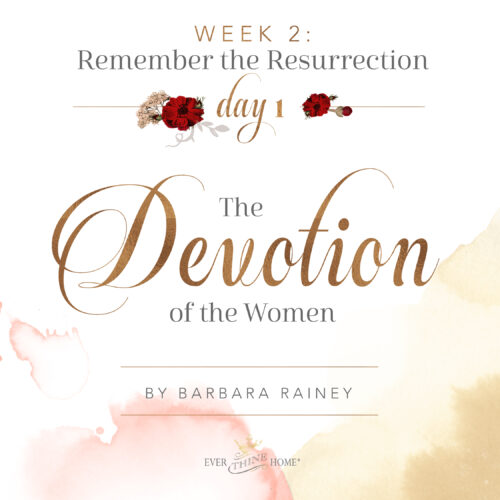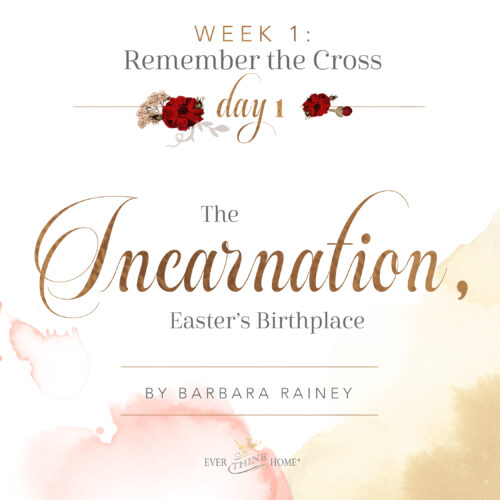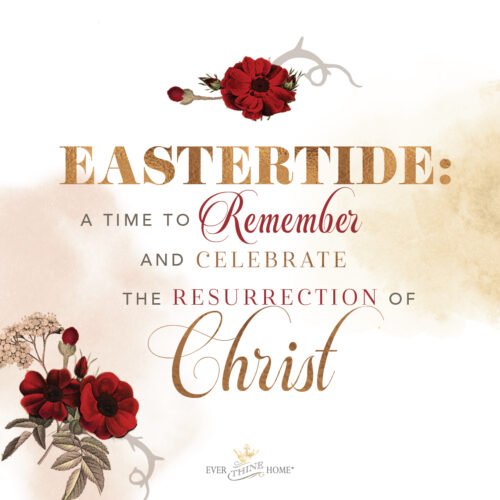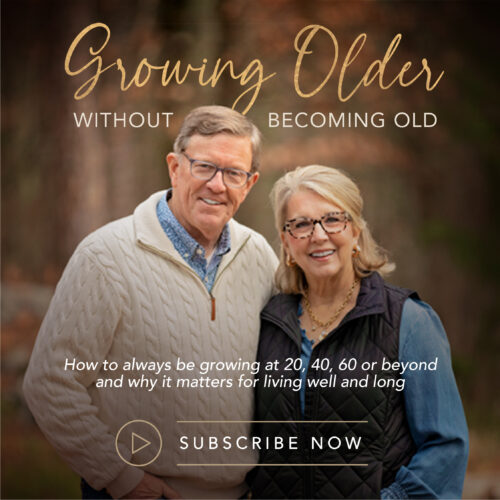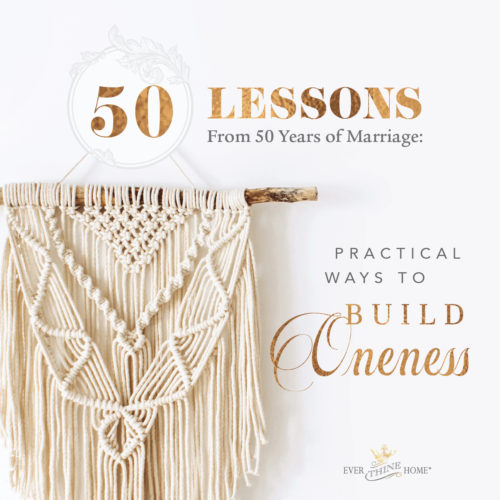

Lesson #9: We learned how to be accountable to one another—to confess our struggles, temptations, and sins to each other.
A verse that became important early in our marriage was James 5:16: “Therefore, confess your sins to one another and pray for one another, that you may be healed.” We learned in year one that a healthy marriage is one where your spouse has access to the interior of your soul.
Dennis began hosting a weekly Bible study in our home. As the businessmen arrived before the study one of them always wanted to talk to me. After a few sessions I (Barbara) began to feel uncomfortable with and confused by his continual attention. I wondered if it was just my imagination; after all he was married with four kids.
My struggle was with transparency. Should I ignore this, deal with it alone, or share it with Dennis? I decided, fearfully, to share. I was greatly relieved that he believed me and didn’t ridicule me. He immediately moved the study to a restaurant. I felt validated and he felt grateful for my honesty and transparency. Our marriage grew deeper by that experience.
Over the years we became “accountability partners” for each other. I (Dennis) asked Barbara many times, “Will you pray for me? I’m struggling with betrayal, or lust, or envy, or comparison.”
We’ve found that our struggles and temptations are clarified as we bring them out in the open with the person who knows us best and loves us most. Forgiving a person or asking for forgiveness … experiencing temptations toward a coworker or neighbor … resisting bitterness toward someone who has hurt you deeply … are all better managed with the help of your spouse. When we risk transparency we can experience freedom, love, and greater oneness.
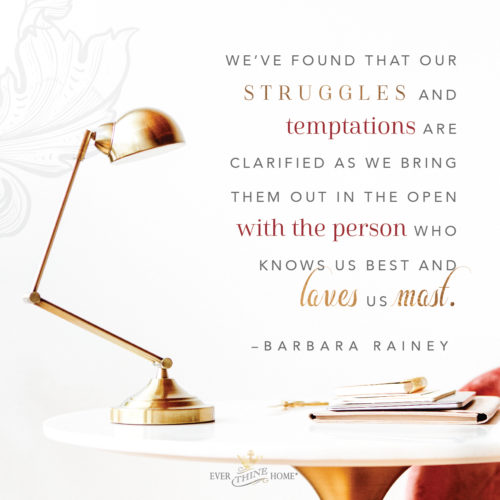
Lesson #14: Determine your core values as a couple.
In the second decade of our marriage, we went on a three-day retreat which, in hindsight, was one of the most significant weekends for our marriage and family. We took an hour alone to write down the top 10 values we each wanted to teach and nurture in our children. Values are intangible qualities like truthful, integrity, forgiveness and kindness … and also tangible activities like celebrating birthdays and holidays, serving the poor and homeless, or going to church every Sunday.
We looked together at our lists and talked about why we chose those values. We then collaborated and created a list of five core values that we both agreed upon. It was a challenge because each of us had to say no to some values we held dear. But over the remaining years of our parenting, our list of five values has called us away from adult peer pressure—what all the other parents were doing—to those things we agreed were most important for us and our family.
That project helped maintain our oneness as a couple when faced with decisions regarding our children’s activities and how we spent our time and money as a family. Our values—not comparison with other families—became our guidelines.

The 80’s were fruitful years!
Lesson #17: Lavishly forgive one another.
Forgiveness owes its value to its scarcity. It’s the missing ingredient in far too many families and marriages that profess to follow Christ. Ruth Bell Graham, wife of evangelist Billy Graham, once said, “A happy marriage is the union of two good forgivers.”
One of our top five values in our marriage and with our children was practicing forgiveness daily. We forgave each other often and sometimes out loud with the kids listening. We taught our children to do the same. Our kids will tell you we repeated instructions on forgiveness probably more than any other lesson we worked to teach. We instructed them to name the mistake or sin and then to say the words, “Will you forgive me for that?”
We also taught the offended person to then say, “Yes I forgive you for __________.” Saying, “Sorry if I hurt you” was not allowed. Vagueness wasn’t either. Sin is serious to God. He sent Jesus to die for our sin so we treated it seriously in our home with our children.
We also taught our kids Ephesians 4:32, and sang these words: “Be kind to one another … forgiving one another, as God in Christ forgave you.”
Forgiveness means giving up the right to punish the other person. If we don’t forgive bitterness can grow and bitterness creates isolation. They knew if they forgave they had to mean it and that retaliating was not allowed. Failing to forgive or ask for forgiveness kills oneness, unity, and life in marriage, family and all relationships.
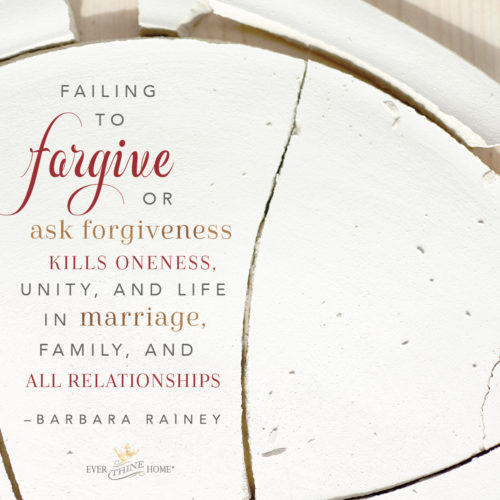
It’s amazing to me how often we have to return to these lessons and relearn them! Repeat … repeat … repeat is the story of our lives, our marriage and yours too. These lessons have been learned but not mastered. And they won’t be on earth.
But God’s grace has become more precious over these 50 years as we’ve experienced His kindness in continually giving us repeated opportunities to confess, forgive and realign with His values. And though mastery isn’t possible, humility and eagerness to forgive quickly has grown with the years.
God is good. All the time.
May you too experience growth in humility and eagerness to forgive.


